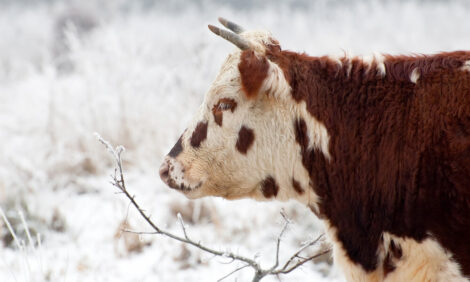



Defra steps up testing as bovine TB 'risks getting out of hand'
UK - Bovine tuberculosis is not a major problem in Scotland, with just a handful of incidents during the past year, but the situation is becoming more serious by the month in parts of England and Wales.The latest figures from Defra reveal that almost 7,000 farms in Britain are now subject to TB-related movement restrictions, up from about 1,600 in 1996. Devon is worst affected, with more than 900 herds in quarantine.
Robert Forster, chief executive of the National Beef Association, said: "The situation is most concerning, with 46 per cent of the herds in England now subject to regular testing, mostly on an annual basis. The disease is in danger of getting out of hand and a lot of farmers are losing money through no real fault of their own."
One farmer who certainly will lose out is Richard Brown of Somerset. His best Holstein cow, which has been subject to bids from fellow breeders of up to £40,000, has been diagnosed as a TB reactor following a recent test. The only compensation he will receive is a miserable £855.
The key to keeping TB largely out of Scotland has been the insistence of the Scottish Executive that all cattle imported from known infected areas, all of which are south of the Border, should be tested before movement, isolated on arrival, and then retested. That policy is working.
Source: The Scotsman


